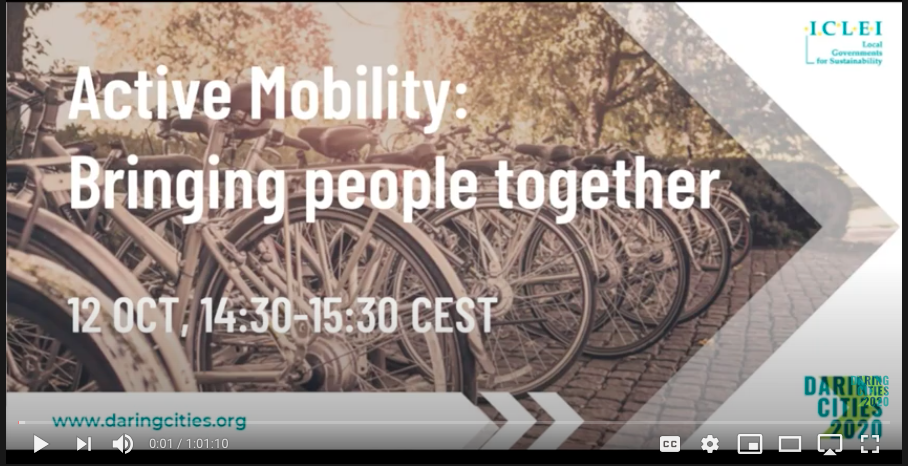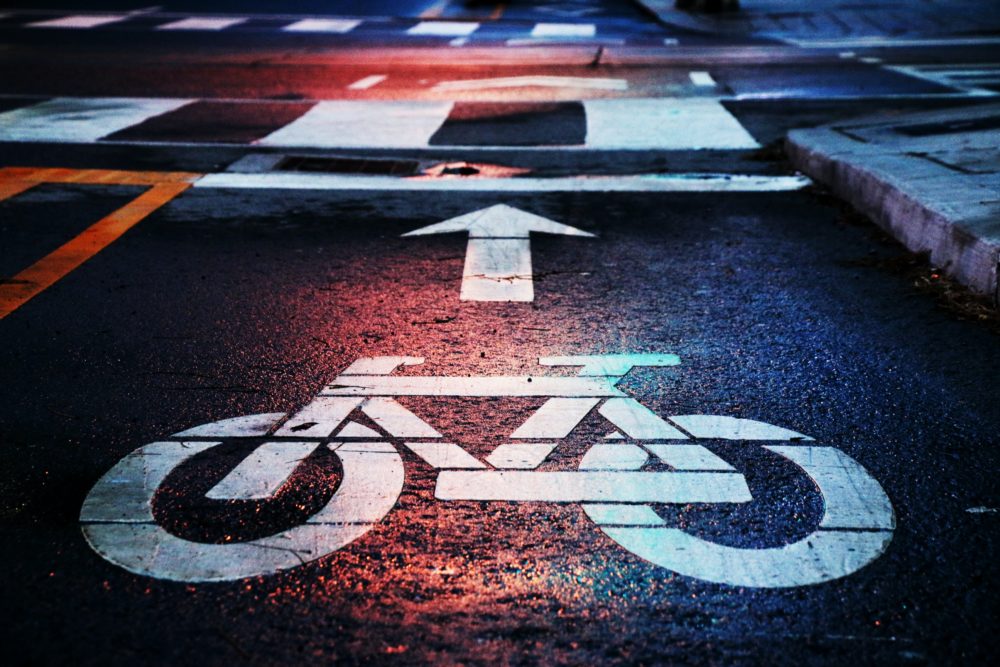
In order to access the video, you must create an account on Daringcities.org or log-in.
Around the world, the negative impacts of our reliance on cars play out on a day-to-day basis. Significant proportions of the urban population in Europe are exposed to air pollutant concentrations above the recommended limits and more than 100 million people are affected by harmful noise levels above 55 decibels. In developing countries, many cities are jammed with cars, which pollute the air, add to global warming, cause accidents and impact the economy. For example, in Bogota and Delhi drivers lose out nearly 190 hours per year due to congestion. Most of Africa’s cities have very limited public transport systems leading much reliance on chiefly diesel-powered mini-buses and personal motorcycles, some of which use 2-stroke engines causing more pollution. In the United States, traffic congestion caused Americans living in urban area to travel an extra 6.9 billion hours and consequently consume extra 3.1 billions of gallons of fuel. Mobility is in need of a total rethinking.
Walking and cycling – active mobility – are equitable, affordable and efficient mobility options that have little adverse impact on the environment. Active mobility supports transport planning ambitions. Walking and cycling are space efficient, flexible, have low individual and societal costs, and, in combination with public transport, can cover almost all mobility needs.
These active mobility modes have also been recognized for providing a wide spectrum of positive health benefits. During the COVID-19 pandemic, cycling was the most preferred mode for individual mobility in cities. Local governments responded with additional pop-up bike lanes in many cities around the world to promote cycling.
This session focuses on the importance of active mobility and how local governments can seize the opportunity offered by the pandemic with an improved urban design and city planning. Learnings from Africa-based NGOs promoting a car-free environment, and pop-up bike lanes around the world during COVID-19 pandemic offer viewers a different perspective.
Speakers:
- Aimee Gauthier, Chief Knowledge Officer, ITDP
- Kirsten Wilkins, Managing Director, Open Streets Cape Town
- Mangesh Dighe, Environment Officer, Pune Municipal Corporation
- Moderator: Tu My Tran, ICLEI World Secretariat
Viewers will get insights on:
- Importance of active mobility, how citizen led groups are bringing change.
- How newer business models of shared mobility are leading the discussion of active mobility, public transport integration in cities?
- How active mobility acts as the catalyst for social equity and local business activities
- The transformation of urban spaces to support active mobility. In what ways the temporary solutions during COVID-19 supporting walking, cycling can be made permanent solutions?
